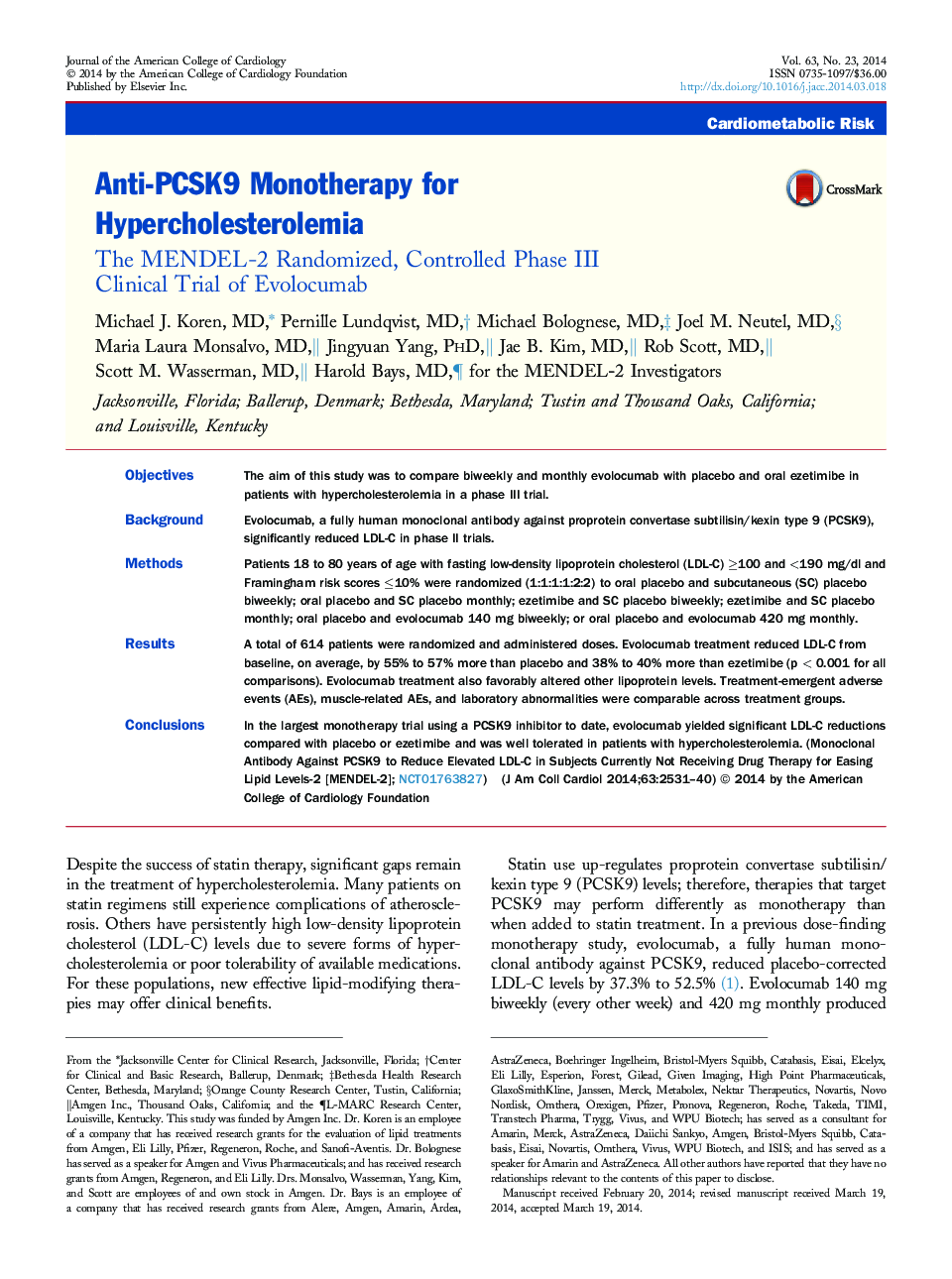| Article ID | Journal | Published Year | Pages | File Type |
|---|---|---|---|---|
| 5983049 | Journal of the American College of Cardiology | 2014 | 10 Pages |
ObjectivesThe aim of this study was to compare biweekly and monthly evolocumab with placebo and oral ezetimibe in patients with hypercholesterolemia in a phase III trial.BackgroundEvolocumab, a fully human monoclonal antibody against proprotein convertase subtilisin/kexin type 9 (PCSK9), significantly reduced LDL-C in phase II trials.MethodsPatients 18 to 80 years of age with fasting low-density lipoprotein cholesterol (LDL-C) â¥100 and <190 mg/dl and Framingham risk scores â¤10% were randomized (1:1:1:1:2:2) to oral placebo and subcutaneous (SC) placebo biweekly; oral placebo and SC placebo monthly; ezetimibe and SC placebo biweekly; ezetimibe and SC placebo monthly; oral placebo and evolocumab 140 mg biweekly; or oral placebo and evolocumab 420 mg monthly.ResultsA total of 614 patients were randomized and administered doses. Evolocumab treatment reduced LDL-C from baseline, on average, by 55% to 57% more than placebo and 38% to 40% more than ezetimibe (p < 0.001 for all comparisons). Evolocumab treatment also favorably altered other lipoprotein levels. Treatment-emergent adverse events (AEs), muscle-related AEs, and laboratory abnormalities were comparable across treatment groups.ConclusionsIn the largest monotherapy trial using a PCSK9 inhibitor to date, evolocumab yielded significant LDL-C reductions compared with placebo or ezetimibe and was well tolerated in patients with hypercholesterolemia. (Monoclonal Antibody Against PCSK9 to Reduce Elevated LDL-C in Subjects Currently Not Receiving Drug Therapy for Easing Lipid Levels-2 [MENDEL-2]; NCT01763827)
